1. Talking on speakerphone in public
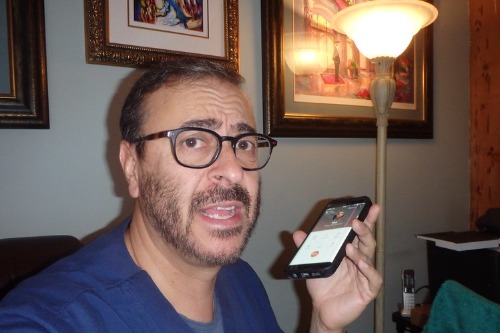
Taking a phone call on speaker while walking down the street or sitting in a coffee shop will almost always attract glares. Americans generally see it as disruptive and inconsiderate, especially in quiet or shared spaces. Even in loud environments, holding your phone up and blasting a conversation can come off as attention-seeking. Bluetooth headsets are a different story, but speaker mode crosses a line.
You might not get called out, but the discomfort is palpable. Public transportation, doctor’s offices, and waiting rooms are places where this is especially taboo. It invades other people’s space with noise they didn’t agree to hear. If you need to take a call, just step aside or use headphones.
2. Wearing shoes inside someone’s home
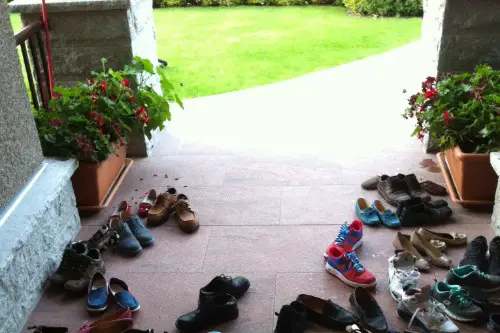
In many parts of the U.S., especially in the South and Midwest, walking into someone’s house with shoes on is totally normal. But in other regions—like the Pacific Northwest or parts of New England—it can be seen as disrespectful or even rude. If you’re invited over and immediately start clomping around in boots, don’t be surprised if you get some uncomfortable glances. Americans don’t always agree on this, but it’s still a touchy, unspoken rule in some homes.
The expectation is tied to cleanliness and cultural background, and it varies more than people think. Households with Asian or Scandinavian roots are especially likely to enforce a no-shoes policy. If you visit someone and see a pile of shoes by the door, that’s your cue. It’s best to ask if you’re unsure—it’s not a dealbreaker, but it’s definitely noticed.
3. Talking too openly about money

In the U.S., money is one of the most awkward topics to bring up in casual conversation. Asking someone how much they make or how much they paid for their house will often earn you an instant change of subject—or an awkward pause. Even though Americans can be incredibly open about politics or relationships, salary and finances are off-limits. It’s a cultural thing tied to ideas of privacy, status, and comparison.
This taboo applies at work, too, though younger generations are starting to challenge it. Still, in most professional or social settings, detailed money talk is a surefire way to make people uncomfortable. Americans often see financial discussion as boasting or prying. So unless you’re talking to a close friend or financial advisor, it’s best to keep dollar signs out of it.
4. Not tipping in restaurants
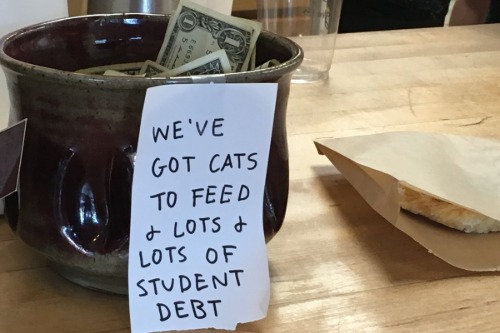
If you’re dining out in the U.S. and skip the tip, your server will definitely notice—and probably remember you. Tipping isn’t optional in most of the country, even though it technically is by law. The federal tipped minimum wage is shockingly low, and restaurant staff often rely on tips to make a living wage. The standard is around 15–20%, depending on service.
Even if you’re coming from a country where tipping isn’t a thing, not leaving anything can be seen as rude or even insulting. Servers may assume you’re cheap, angry, or just wildly unaware. In tourist-heavy areas, this is a common friction point. Always check the bill and tip accordingly—it’s baked into American dining culture.
5. Standing too close to strangers

Americans like their personal space—it’s one of those invisible rules that people feel more than they talk about. If you’re chatting with someone in line and standing too close, you might see them subtly lean away or take a step back. In general, the “comfort bubble” is about an arm’s length away. It’s more relaxed in some cities, but in most places, space equals respect.
This rule applies in elevators, waiting rooms, and even on sidewalks. If you crowd someone, they’ll notice—even if they don’t say anything. It’s not aggressive; it just feels too intimate too fast. Americans associate physical distance with safety and social boundaries.
6. Cutting in line
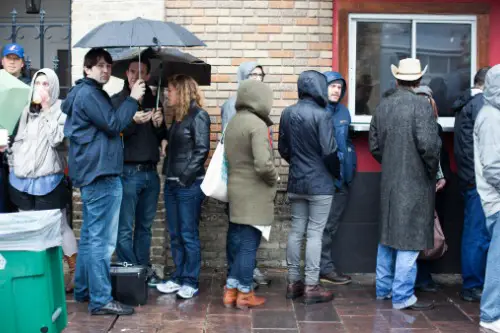
There are few faster ways to get side-eyed in public than skipping ahead in a line. Americans take queuing seriously—it’s a basic fairness thing that feels almost sacred in places like airports, coffee shops, and amusement parks. Even asking, “Can I just go ahead real quick?” can rub people the wrong way. Everyone is waiting, and the expectation is that you do, too.
There’s no formal enforcement, but you’ll hear sighs, muttered complaints, or even direct confrontation if you cut. It doesn’t matter if you’re in a rush or think your transaction will be fast. Jumping the line is seen as disrespectful to everyone behind you. It breaks the unspoken code of civility.
7. Being barefoot in public (outside the beach)

While being barefoot at the beach or in your yard is fine, walking into a gas station, store, or fast food joint without shoes is a guaranteed way to get stared at. It’s not illegal in most places, but it’s heavily frowned upon. Americans associate bare feet in public with being unsanitary or unkempt. You’ll even see “No Shirt, No Shoes, No Service” signs at many establishments.
Even in relaxed towns or beach cities, people will look twice if you show up barefoot at the grocery store. Hygiene concerns and general norms make it feel out of place. Some businesses can refuse service just for that. It’s one of those rules nobody writes down—but everyone enforces.
8. Asking someone what they do before anything else

In some social circles, especially in big cities or networking events, asking “What do you do?” right away is common. But in more laid-back or rural parts of the country, it can feel impersonal or even shallow. Americans don’t always want to be defined by their jobs—especially if they’re in between gigs or doing something they’re not proud of. Leading with that question can come off as sizing someone up.
It’s better to start with something more neutral, like how they know the host or if they’re from the area. Americans often value friendliness over formality in casual conversation. Once you’ve established a rapport, job talk can come later. Just don’t make it the first handshake question.
9. Not making eye contact

In many countries, avoiding eye contact is a sign of respect—but in the U.S., it’s often interpreted as suspicious or rude. Americans generally expect a certain level of eye contact during conversation to signal attentiveness and honesty. If you look away too much or keep your eyes on the floor, people might think you’re nervous, uninterested, or hiding something. It’s subtle, but it shapes how people perceive you.
That said, too much eye contact can also be intense—so it’s a balancing act. Brief but regular eye contact is the norm. Especially in interviews or formal settings, it’s seen as a basic communication skill. Cultural expectations vary, but this one runs deep in American social cues.
10. Double dipping

You take a chip, dip it, bite it—and then dip it again? In the U.S., that’s an instant “ick” moment at a party. Double dipping is viewed as unsanitary, and it’s enough to get you some side-eye or even a gentle correction. Most Americans don’t want to share your saliva, even indirectly.
It’s especially frowned upon at potlucks, buffets, or Super Bowl parties. People expect you to either use a fresh chip or flip it to the unbitten side. Even close friends might cringe if you break this rule. It seems small, but it’s a hygiene-based taboo that sparks surprisingly strong reactions.
11. Making too many direct compliments

You’d think Americans love compliments—and they do—but overdoing it can make people suspicious. Saying “You look amazing!” once is fine, but piling on praise too fast can feel fake or manipulative. Americans value sincerity, so if you’re gushing about someone’s shoes, their job, and their smile all within one minute, they might pull back. It can also be misread as flirting or trying too hard.
Even in friendly areas, moderation is key. A well-placed compliment goes far, but authenticity matters. Over-complimenting can make someone uncomfortable or unsure of your intentions. Tone and timing matter just as much as what you say.
12. Inviting yourself over
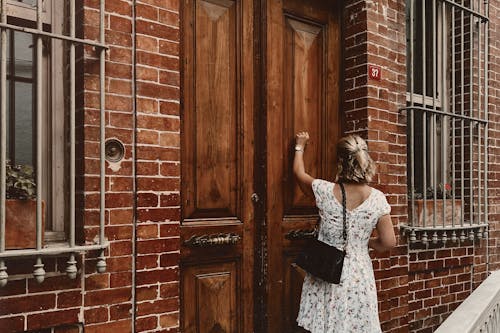
Showing up unannounced or inviting yourself to someone’s house without a clear invite is generally a no-go. Americans like to plan social time, and dropping in can be seen as intrusive. Even close friends usually text before stopping by. It’s a big contrast to cultures where hospitality is more spontaneous.
There’s a strong preference for respecting privacy and personal time. If you say, “I’ll come by later!” without being asked, don’t be surprised if the response is awkward. Americans often keep home life and social life separate unless plans are specific. A quick text can save a lot of weirdness.
13. Bringing up politics at the dinner table

Even in a politically obsessed culture, there are unwritten rules about when and where to bring it up. Thanksgiving dinner, family BBQs, or first dates are all bad times to launch into heated debates. Many Americans see it as polarizing, especially in mixed company. It can instantly shift the mood from relaxed to tense.
Unless everyone clearly agrees—or asks to discuss it—it’s safer to avoid the topic. Americans often use meals as a time to unwind, not argue. Even people who are very political know when to keep it light. It’s about reading the room and knowing your audience.
14. Letting your kids run wild in public

In places like restaurants, airports, or waiting rooms, Americans expect parents to keep a reasonably close eye on their kids. Letting children scream, throw things, or run around unchecked will draw stares and sometimes even comments. People tend to see it as a reflection of parenting. It’s not about kids being kids—it’s about public courtesy.
Parents are under a lot of pressure to balance discipline and freedom, but the general public leans toward wanting quiet and order in shared spaces. A kid having a tantrum isn’t taboo—but a parent doing nothing about it often is. Even other parents may give side-eye if things feel out of control. It’s a hot-button issue that sparks online debates all the time.
15. Calling adults by their first name too soon

In casual situations, Americans are more informal than many cultures—but there are still lines. If you call someone’s parents, teacher, or older boss by their first name without being invited to, it can come off as too familiar. Especially in the South or Midwest, titles like “Mr.” or “Ms.” are used until given permission otherwise. It’s about respect, not just grammar.
This can be confusing because it’s not always enforced. Younger people might not care, but older generations tend to notice. It’s better to start formal and adjust based on their response. That tiny extra formality goes a long way.
16. Bringing super smelly food to a shared space

Microwaving leftover fish in an office break room? Instant mistake. Americans are very scent-sensitive in public or communal areas, and food smells that linger can make you public enemy number one. It’s not a health rule—it’s a comfort one.
Coworkers might not say anything to your face, but the complaints will pile up fast. Even in college dorms or public transportation, this rule holds. Stick to neutral-smelling snacks if you’re unsure. Better to be boring than infamous.
17. Not acknowledging someone when they sneeze

It might sound small, but in the U.S., ignoring someone who just sneezed—especially in a quiet space—can come off as cold. Saying “Bless you” is such a reflex that not saying it can make people feel weird. It’s not religious for most people—it’s just cultural conditioning. It shows you’re paying attention and being polite.
Even strangers expect it on some level, especially in workplaces or waiting rooms. It’s one of those tiny social niceties that people really notice when it’s missing. You don’t have to shout it, but a quiet “Bless you” goes a long way. It’s free, easy, and oddly important.
This post 17 Local Taboos That Sound Made Up But Will Get You Stared At was first published on American Charm.


